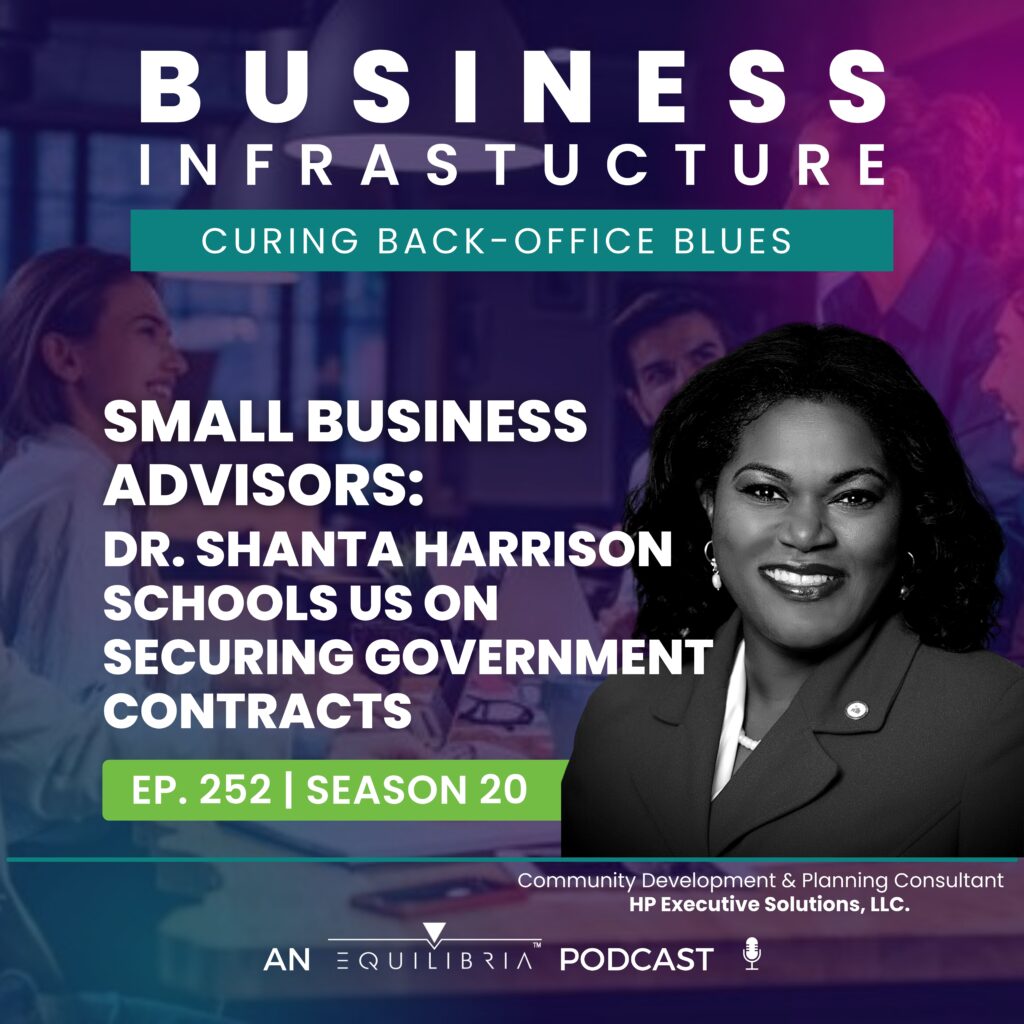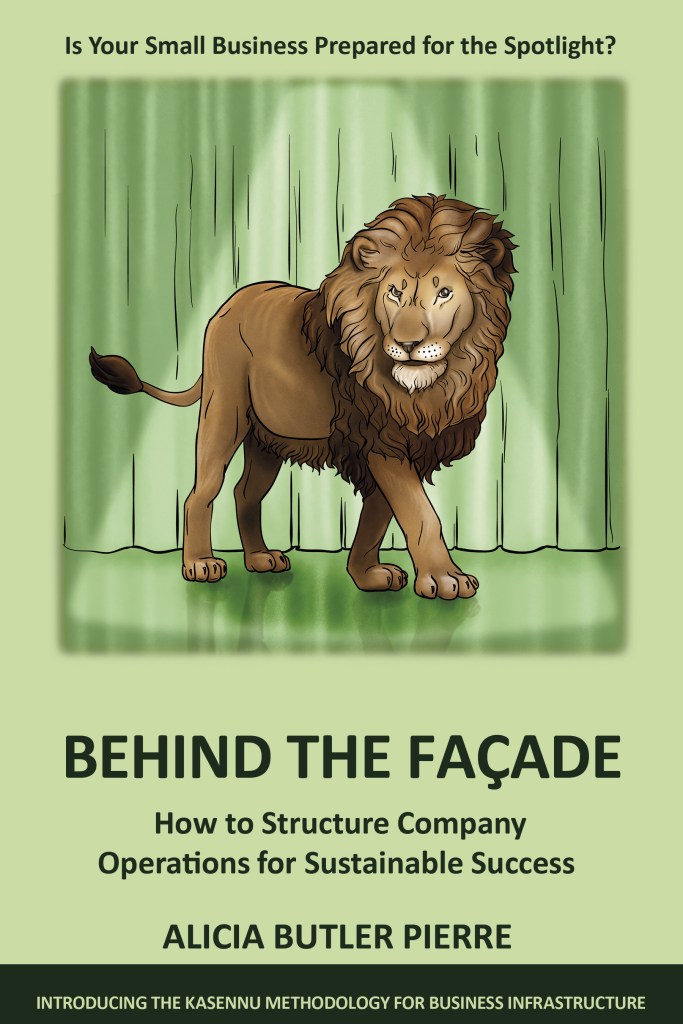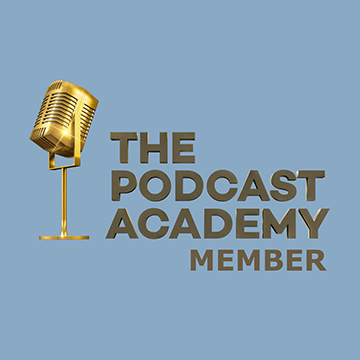Transcript
Imagine this. You have the opportunity to land your first big contract. There’s a lot of money involved. You’ve read the requirements for the contract and you’re confident your company meets all of the skills and qualifications required. You have the ambition, the drive, and the motivation to complete the work. There’s just one problem. The contract is with a government organization. And, though you know you can do the work,
there’s a host of other things you didn’t realize you needed in place to do business with that organization. This scenario happens to a lot of small businesses all the time and today, you’re in luck because that’s what this episode focuses on.
This episode is underwritten by Equilibria, Inc. the company behind this podcast where we design scale-ready business infrastructure for fast-growing small businesses.

It’s Season 20 of the Business Infrastructure podcast – the show where we share operational tips, strategies, and tactics to help you cure any back-office blues you might be experiencing. This season features 12 small business advisors, each with a unique skillset they’ll share with you.
When it comes to doing business with the local, state, or federal government in America, you typically don’t just walk in, roll up your sleeves, and get to work. No, there are certain things that must be done to set your company up as a government vendor among other things. Luckily, our advisor in this episode has been on both sides of the government coin when it comes to policymaking and entrepreneurship.
This is Episode 252 –Dr. Shanta Harrison Schools Us on Analyzing Census Data to Secure Government Contracts and Certifications
My name is Shanta Renee Harrison. I’m located in Houston, Texas and I’m representing HP Executive Solutions, LLC.
I currently serve as the Deputy Assistant Director for Communications and Outreach for the City of Houston’s Housing and Community Development Department. We interface directly with the mayor on his initiatives for solving a myriad of problems, including access to decent housing, mixed-income usage, and the homeless on some levels. But in addition to that, helping provide safe, affordable housing in communities where people can live and thrive.
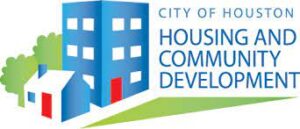
Dr. Harrison’s latest role for the City of Houston comes after what’s been a long, fruitful career in the government space.
It is truly an amazing journey that I’ve been on for the last 30 years. I began in 1994. I was still a high school student, and I just haphazardly signed up in my guidance counselor’s office for some type of work or work-study, and I end up being assigned to a local councilman by the name of Wilson Fields.
He went on to run for office and he became a senator, and he carried a few of his staff members with him, one of which was me. I was very young and had this opportunity to join the Louisiana Senate. I started as a Page. A Page is really, the grunt work of the legislature. Back then we did not even have the internet.
Dr. Harrison’s humble beginnings as a Page laid the groundwork for her career in government as well as her future entrepreneurial ventures. As a Page, she worked in maintaining different back-office operational activities for the State of Louisiana in the capital city of Baton Rouge.
So, the Pages sat on the House or Senate floor and provided coffee for the members of the legislature or they would go to the bill room and pull different legislative instruments. There was no internet at that time. And you literally went to this, micro library of sorts and there are documents and legislative instruments there at the Louisiana legislature.
And so, for the Senate office, after this councilman brought me with him, that Page job turned into a number of opportunities. I started working in the Public Information Office. From there, I continued on in Louisiana Senate and I began to work in the law library. From the law library, I became a webmaster for Louisiana Senate. And that was a super interesting job because my primary role was really responding to constituents that provided information via the web.
Dr. Harrison worked there another seven years until a unique opportunity presented itself.
I ended up, taking a leave of absence. Jerry Giot, who’s still the chief of staff there, gave me time away for me to go to Venezuela and do a little bit of mission work and study abroad for some time. He held my job. And when I came back, I was able to rejoin that office.
From there, I went on to work for the House of Representatives. And then the Black Caucus was another job. I’ve worked literally almost in every office that the state capital had to offer, from both sides of the legislature and various special interest caucuses and then onto the governor’s office. I served under three different gubernatorial administrations. Most of those times I served as the Director of Women’s Policy.
And it was during Dr. Harrison’s term as a Director of Women’s Policy that she not only got a taste of policymaking but she was also bitten by the entrepreneurial bug. Not one to let dust collect on her feet, she still went on to have several more jobs holding positions like Chief Administration Officer and Policy Director, until landing where she is today at the City of Houston. Houston is the capital city in the neighboring state of Texas, with a population of 2 million more people than Baton Rouge.

This job is quite enormous, and we have an opportunity to impact so many people’s lives for the better. And it’s not lost on me, the power of the pen and the importance of shaping policy. Often people are not engaged until they see how legislative matters and policy matters ultimately impact their personal lives and businesses.
And having this firsthand account of the impact of policy on businesses gives Dr. Harrison a unique perspective as an entrepreneur, starting with the circumstances that led her to start her company – HP Executive Solutions.
HP Executive Solutions was born out of necessity. I was working for a gubernatorial administration, and that particular governor had gone out of office. And if anything knows anything about executive leadership that happens in Corporate America as well, the new guy brings in their team.
And so, I was just a casualty of an administration change. but having and cultivating relationships and building positive rapport with people. So, what I found is, when myself and a number of other individuals who were in high-ranking leadership were let go on a Friday afternoon, I was in business on a Monday morning.
And just like that in November of 2008, HP Executive Solutions was born. All of that networking and relationship-building Dr. Harrison did over the years in her various government positions paid off. She landed not one, but five contracts within a week even scoring an investor along the way!
Devin Harrison invested the initial seed funding to file the Articles of Incorporation. And the business was birthed, honestly, to house these contractual opportunities. HP Executive Solutions is a business outsourcing firm.

We do anything that you hire an executive director to do, or a senior-level manager to do. We primarily focus on project management, compliance management, program evaluation, monitoring, design survey design, survey, and data analysis. We do some training and board development as well. Organizational culture guidance and consulting. A lot of community planning and strategic community planning fall under this and work on communications. Organizational assessments and improvements is another one of our, bread-and-butter types of things.
With all of her initial success as a business owner, Dr. Harrison quickly saw the need to implement the business infrastructure. This enabled her to expand her team, processes, and tools of the trade so that HP Executive Solutions could scale in a sustainable, repeatable, and profitable way.
HP Executive Solutions was awarded a business expansion grant. And out of that business expansion grant was birthed, a manual of about 45 pages that helped me to expand my business to some aerospace consulting and specific market consulting and doing business with the federal government as a government contractor.
From there, I was able to acquire a number of certifications that I’ve learned are really important in the federal space when doing government contracting. I had a business mentor that was also a business owner in the Atlanta area, who encouraged me to be very intentional about ensuring that I found these different certifications and applied for them expeditiously, which I did at the time.
Okay, I’ll admit it. That business mentor she’s talking about is…me. We’ve known each other for a long time. But I digress…there are a number of certifications that small business owners can apply for in order to be considered for government contracts. Certifications based on factors like your business being more than 50% minority, veteran, or woman-owned help level the playing field when competing for government contracts. As Dr. Harrison learned, it would take more than just having certifications to be successful at government contracting.
And so I found, in that federal space, it was really interesting that you have to be able to understand and know that language. You need a SAM account, which is the Systems of Award Management, or a Dunn’s number, or a CAGE code, or a NAICS code, you know, being able to learn that lingo and walk, through the process. Each one of those pieces of this puzzle is a process in and of itself. And so, the journey was certainly not for the weary.
She’s not exaggerating. If you can stomach it, government contracts can pay off handsomely. That’s why it’s important to take advantage of special programs designed to help small businesses prepare for doing business with the U.S. government. One such program that Dr. Harrison took advantage of is the SBA Emerging Leaders Program.
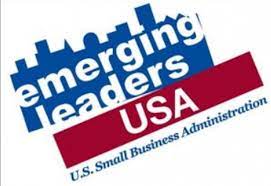
What I learned most with the SBA’s Emerging Leaders Program is how to work in my business and simultaneously work on my business. And so many small business owners have a challenge when it comes to being able to recognize how to compartmentalize the two.
So often we as business owners get stuck in the weeds of the day-to-day management of the operation of that business that we forget to work on the mechanics of continuously improving the business and its processes and how to grow business opportunities, how to market and ensure that while you’re working in the business, that you’re constantly striving to attain and attract new
business opportunities, simultaneously.
And as Dr. Harrison learned, this ability to work both on and in her company as she built its business infrastructure went a long way in making her relocation from Louisiana to Texas relatively seamless.
I was doing some virtual work from across state lines and a little bit of international work. And what I found is that the SBA offers so many free tools through some of their Small Business Development Centers. The one that I’m currently a part of is the Texas Gulf Coast Network. It’s housed at the University of Houston. And they assign you a business consultant.

That business consultant will work with you one-on-one. They’ll give you a scope of work. You talk about where you are in your business and what those pain points are and the kinks. And there’s literally a checkpoint, like a 30-point multisystem, as if you were to take your automotive to a body shop to get a repair. That’s exactly how I conceptualize the way in which the SBA and the Small Business Development Centers work. It’s almost like a 30-point inspection.
They come in and they ask you questions about your business and assign you with a one-on-one coach that is able to give you no-cost business consultation and training and education, and, and also the accountability because they’re going to set follow-up appointments with you to make sure that you’ve met those benchmarks that were set forth that you and that business coach have agreed upon. So, it’s really a hidden jewel on a number of levels. There’s professional development, and there are monthly training programs that the SBDC offers. In addition to that, there’s an annual National Professional Development Conference.

Another discovery that Dr. Harrison made regarding the SBDC is their access to university-level market research. As the owner of a startup or even an emerging microenterprise or small business, you likely won’t have the money to hire a consultant who can do this type of research on your competition. But you can reach out to the SBDC for free assistance.

They can provide market research reports for your specific industry. I think it’s super amazing that, with that National Market Research program, the SBDC can provide an economic analysis of where you are and the competition that’s in your market. They provide a number of specialty services that I found to be extremely instrumental in helping the business from cybersecurity education to technology commercialization to international trade and export assistance. And I know for any business owner, trimming the fat and trying to keep your overhead low is key to effective business management.
Trimming the fat means having a lean operation – one where you can do more with less. It’s something we advocate here at the Business Infrastructure podcast. You’ve heard how Dr. Harrison built up her career in government, but now we’re going to flip the coin and explore her entrepreneurial ventures in government. That, along with my big reveal, is coming up after this commercial break.
How do you know if your business is growing faster than you can keep up with? If you have trouble keeping up with things like deliveries and projects. Your customers are angry, team turnover is high, and the complaints are piling up. Where can you go for relief? How can you save your business from the chaos of unmanageable, fast growth?
It might be time to build business infrastructure. Business infrastructure is a system for linking the people, processes, tools, and technologies that act as the heartbeat of your back-office operations. It gives your fast-growing small business a stable foundation to not only continue growing but to scale in a profitable, sustainable, and repeatable way.
That’s why if you want a business that can consistently operate without your daily presence, then the Smooth Operator course is for you. It’s an online introductory course on business infrastructure that can provide you with proven tools, tactics, and techniques to calm the chaos and restore order. Go to SmoothOperator.courses to learn more. That’s SmoothOperator.courses.
We’re back and before the break, Dr. Shanta Harrison took us down memory lane as she recalled her career journey in various levels of government. Now she’s going to share with us how her knowledge of government can help you not only secure contracts but also the relationships necessary to increase your odds of doing business with the government.
So, in cities and states all across the country here in the US, there are various laws of the land that drive the policies, and they all differ in various scenarios. So, the city I was trained in had really strict zoning laws, and it was, you know, real planning centered. And various areas were zoned for certain usage and they’re extremely intentional about how that property was used in the past.

For instance, if it had been used for maybe a gas station it would have to go through certain regulations in order to be changed, to be used for a different type of business or a different type of structure. Here in Houston, what I’ve learned is that it’s a little bit of leapfrog development. And that is, depending on what the immediate local economy is doing, development follows the trend of where the money goes. And there are not a lot of zoning restrictions here in the city.
You can drive down any highway and you can literally see an apartment complex, a strip mall, a single-family neighborhood, and then a cow pasture. In suburbs in many cities across the nation, there are specific usages of tracks and plots of land that designate place-based type planning for housing and for business.
In her latest role with the City of Houston, Dr. Harrison manages the Communications and Outreach department. Some of the technologies they use, like Geographic Information Systems or GIS, have enlightened her on the connection between population data and funding for small businesses.

What I found is in the City of Houston, the city office is more than triple the size of the entire state that I originated from. Budgetarily, population-wise, staffing, all of those things because it’s such a concentrated population. And much of these funds are driven by census tracks. I always harp on the importance of filling out the census because it drives so much of this federal funding.
There are so many things that are decided upon and driven by the census, even as a small business owner, Historically Underutilized Businesses, the HUB certification. Where you build your business is definitely being able to qualify for certain designations as a business. For certain census tracts, depending on the poverty level, there are a number of other factors that play into whether or not you can be considered a HUB zone, a Historically Underutilized Business zone.
It’s all driven by the census responses, and that’s what drives funding allocations, Title One funding for schools, even colleges, you know.
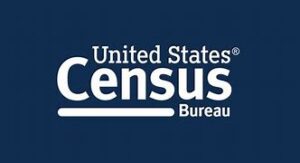
I just encourage business owners to become familiar with their census data and the opportunities. Just a simple search online can reveal opportunities that are specifically driven by rural zones and Historically Underutilized Business zones based on the poverty levels in that area and the area median income.
And this, Dr. Harrison stresses, is why understanding the importance of participating in the U.S. Census is so important. Funding for government initiatives is driven by this single source of data. So, get involved and understand your local government’s structure. In fact, Dr. Harrison suggests you take the initiative to actually get to know your local politicians if you don’t already.
Having effective and intentional relationship building is important. People do business with those that they know and those that they like. In the book, How to Win Friends and Influence People, that is one of the themes that has been, illuminated in that book. I think it’s important that relationships are cultivated because that is ultimately how business is done, not only here in the States, but I believe all over the world. Getting outside of the walls of your office, and sometimes it can be hybrid, it can be virtual, but literally getting to know people. It’s amazing what can be accomplished over a meal or over, a drink, a coffee or what have you.
Here’s a bold thought – what if you included some of your local politicians as external resources on your company’s organizational chart? They aren’t legally paid by your organization (unless, of course, you’re giving a donation to their campaign), but depending on the industry your business is in, having relationships with them can be critical to your company’s operational success. Here’s some more advice from Dr. Harrison regarding additional resources to consider as you grow and scale your business.
First, I encourage business owners to find a mentor and maintain a mentor. Often, we do start and stop relationships where we start out really strongly and then we back up and it reminds me of a student learning how to drive a car or a stick shift. We start and then we jerk back, and then we…but the maintenance of those mentorship relationships is very important.
I know in Corporate America, we talk a lot about sponsorships and how sponsors can open doors and that sort of thing. But having a genuine relationship with the individual who has gone down the path that you’re wanting to go down and has tripped, fallen, and bumped their head, if you can avoid those pitfalls, by all means, please do so. Talk to them, cultivate that relationship, maintain it, and not only call them when you need something but call them when you can offer help as well.
Having more than one mentor is certainly acceptable. There are no rules against having multiple mentors. Back to, the Dale Carnegie book, it’s old, but it has a lot of wisdom. Just being able to understand what people like and knowing what they want to talk about and learning as much as you can on that, I encourage.
Partnerships I think are also very key. If you have lemons and I have sugar, and we have a third party who has water, we can make lemonade and open up a stand together. And so having the partnerships in place and having your paperwork in place is also very key.
If you need to do an NDA, which is Non-Disclosure Agreement, or if you need to do an MOU, which is a Memorandum of Understanding, having the proper paperwork in place avoids headaches in the long run. And so just being very upfront about, all of the agreements and the legal banter is super, super important. Another is to research best practices in your industry of expertise. Finding out what the industry standard is, what the trends are that are currently happening, and staying on top of that.
Dr. Harrison also mentioned leveraging social media as a source for finding information to assist you in operating your business, but with a caveat.
You have to use discipline when using social media because it can suck up your time. I have a little egg timer that I bought on Amazon, and I give myself a 30-minute window and I set that timer and I’m on social media. I tell people I make guest appearances because I know how my brain works.
That entertainment factor, it is a vacuum, and it will hinder your productivity if you don’t manage it and mitigate the temptation to jump down. So, you can use social media to search by certain hashtags, hashtag woman-owned business, hashtag you know, whatever it is that your goal is for getting online in the first place. And last but not least, I encourage business owners to remember
you’re why.
Whatever that pain point was that got you into business in the first place. And this may sound a little bit cliche, but so often we get so busy with the work that we forget about the why of the work. And so, make sure that we remain driven and motivated and keep that goal before you in some type of way, you can use your screensaver on your phone as a reminder.

You can post in your car or on your refrigerator or use a mirror at home or in your restroom. Wherever that commonly visited place is, begin with the end in mind. Remind yourself what the why is and what your goals are helping to maintain that drive and that encouragement to stay in the race. And back to that business mentor, if you have someone in your corner who’s going to encourage you to stay in business and not to give up, I think that’s super key. And I had that, and I’m super grateful for the business mentor who helped me, not only get in business but stay in business.
May I add to that? To kind of piggyback off the importance of having business mentors is also to have your tribe. Other entrepreneurs, because it can be very lonely when most of the people around you are followers and not leaders, I don’t want to say that, but when most of the people around you work for someone else and you have made a conscious decision to work for yourself. To build something from scratch oftentimes you’re just out there and sometimes. You need your tribe around you.
I agree completely. I imagine that that’s also very beneficial for your mental health because absolutely there’s empathy that can be offered or experiences that can be shared and garnered from one another. I can imagine that that’s healthy to manage stress and also to know that you’re not alone and you’re not the only person experiencing the challenges and whatever potential difficulties or triumphs that you may experience as the business journey unfolds.
At the very beginning, I told everyone that you are a very important person, VIP, because not only are we in each other’s tribe, but we’re also family. Shanta is my cousin, everyone – the first relative I’ve ever had on my podcast! A lot of times when we start our businesses as entrepreneurs, even if we don’t have other people in our family working alongside us, it’s difficult to have your family kind of rally around you because they want what’s best for you. And sometimes they can project their fears onto you, and that’s the last thing in the world you need when you’re trying to build something.
But you have to just learn that they’re coming from a place of love oftentimes. And so, the great thing about our relationship is we’re family, but we’re also in each other’s tribe. We have each other’s backs, and we understand where we’re each coming from. And that is so, so important. And I appreciate you for coming onto the show and sharing all of your knowledge and wisdom.
Thank you so much, Alicia, for having me, and for providing long-term inspiration for me and my business endeavors. Blessings on your podcast and your business.
And blessings to you too my dear cousin. Let’s give it up for Dr. Shanta Harrison! Isn’t she awesome? I’m not just saying that because she’s my cousin. She really is a wealth of information and let me tell you, she is the queen of multitasking! Make sure you go to BusinessInfrastructure.TV to access links to the resources she shared during this episode. Again, that’s BusinessInfrastructure.TV.

Thank you so much for listening! If you enjoyed this episode, then subscribe to the show and leave a five-star rating and review wherever you’re listening.
Coming up in the next episode, you’ll hear from someone who will teach you effective storytelling so that you can draw potential customers in and keep them hooked on your goods and services! Stay tuned because we’re going to have fun!
As you continue navigating the operational challenges of managing a fast-growing small business, just remember to stay focused and be encouraged. This entrepreneurial journey is a marathon and not a sprint. So don’t grow alone! We’re here to support you so don’t hesitate to reach out to us.
This podcast was written, produced, and narrated by me, Alicia Butler Pierre. Audio editing by Olanrewaju Adeyemo. Original score and sound design by Sabor! Music Enterprises.
This is the Business Infrastructure – Curing Back-Office Blues podcast.


